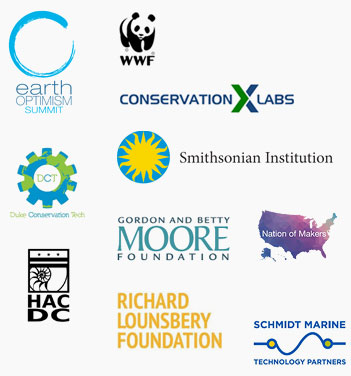Tackling Overfishing, Wastage, and Market Inefficiencies in Our Seafood Systems
The Problem
Globally, almost a third of all assessed fish stocks are overexploited and nearly 60% are fully exploited, which means only the remaining 10% of stocks can withstand an increase in catch (FAO, 2016). At the same time, the world’s population continues to explode – especially in coastal developing countries where reliance on fish for food and livelihood is disproportionately high. These same countries are particularly challenged in managing their fisheries sustainably; to do so they need information about what (and how much) is being caught and the effort being used to catch it (i.e., how many boats and of what size, how many days out fishing). But these data are often missing, and small-scale fisheries’ catches reported to the UN have been significantly underestimated in part for this very reason (Pauly and Zeller, 2016).
This missing information can lead to poor management and fewer fish. For example, overfishing – taking more fish out of the water than can be replaced through reproduction – leads to shrunken populations and fishers’ catches. But this is just one source of “lost fish” – above and beyond that, about a third of the total catch is discarded, lost or wasted (Figure 8, FAO, 2011). Damaged or incidental catch is thrown overboard, but even after the fish make it into the hold the loss continues, via spoilage due to lack of cold storage on the boat or at port, inefficiencies in the supply chain, and mismatches between a fisher’s catch and the market’s demand. These losses mean less food and income, and drives fishers back out to continue a cycle that leads to overexploitation – especially in non-industrial fisheries in less developed countries.
The Challenge
Find ways for small-scale fishers and/or buyers to “recapture” this lost fish with solutions that address the lack of fisheries data, cold storage options and market access.
Problem Statement
There are a number of possible solutions to overfishing, wastage, and market inefficiencies in our seafood systems. Consider scalable solutions that tackle the following
1. Information Provisioning - Tools or technologies that would allow for better collection and reporting of catch and fishing activity in non-industrial fisheries, including ways to empower these groups as partners in sustainable management.
2. Cold Storage - Low-cost and/or durable technologies for cold storage of fish either onboard or at port, preferably utilizing clean technology and/or easily-sourced materials. This could include modifications to existing technologies that dramatically reduce cost, increase accessibility, or reduce the environmental footprint.
3. Market Access - Improve the supply chain via new tools, financial incentives, or other innovations which can allow fishers to catch more/less/different fish depending on market needs. This could include mechanisms to alert fishers when oversupply has driven down prices or alert regional suppliers to the species and quantities coming into local ports.
This Challenge was originally pitched by Dr. Katie Matthews, Deputy Chief Scientist at Oceana as part of the Make for the Planet Competition in April 2017.
Respond to this Challenge!
While the Make for the Planet competition has ended, the conservation problems have not been solved! Your ideas and project proposals are needed to make a difference in conservation.
Share your project on the Digital Makerspace to shape and improve your idea. You’ll benefit from the technical expertise of the Tribe and connect to additional financial and technical resources. We’ll help you navigate the tech development process and identify market opportunities. Through collaboration, we build conservation solutions that are impactful and have the potential to scale.
PART OF
Make For The Planet (M4TP)PROJECTS
Low Cost Marine Sensors
We want to develop low cost marine sensors and database to study ocean acidification, temperature and other indicators, in order to better understand the problem and find more effective solutions
Complex CMUPAB
Complex for monitoring the use and protection of aquatic bioresources (CMUPAB)
CHALLENGE LEADER
SPONSORS & ORGANIZERS
